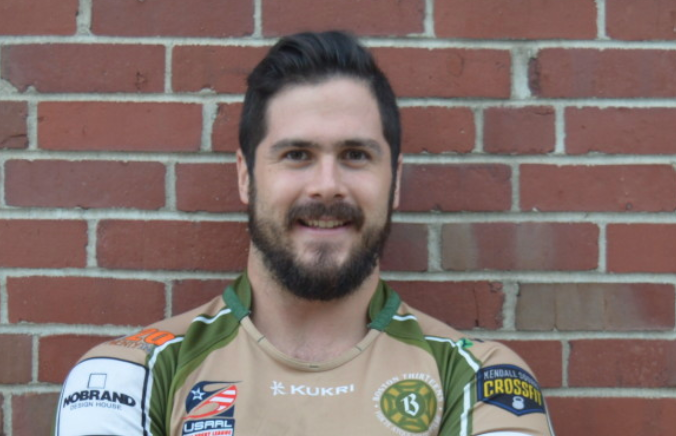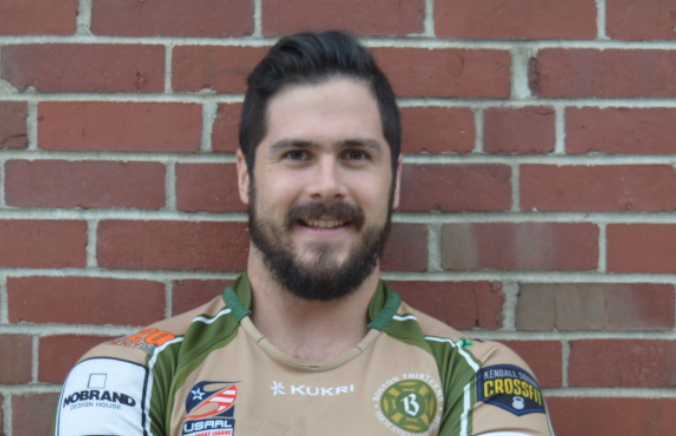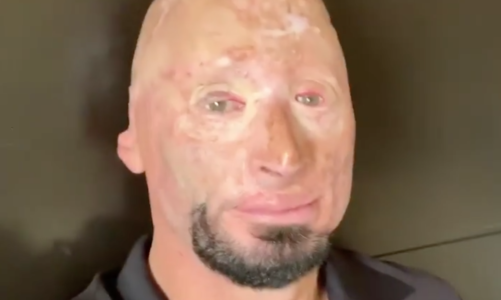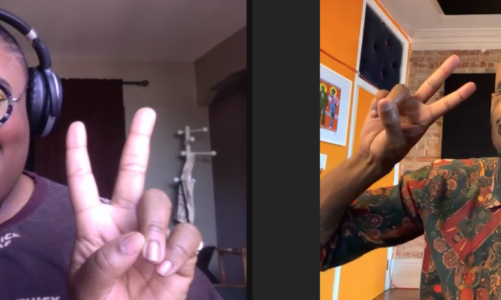
Marcos Flegmann was a rugby athlete who most notably played for the Boston Rugby Football Club from 2012-2016 and the Mexican National Rugby Union from 2013-2017. After picking up the sport in high school, he played for Babson College until graduating in 2012. Immediately after college, he entered the field of private equity real estate, and made partner at Boston Andes Capital while competing on multiple travel teams, primarily as a lock. He captained the Boston Thirteens during their 2015 USARL [USA Rugby League] Championship win and played for the Mystic River Rugby Club during their 2016 USA Rugby Championship season. He was on the American squad that took two gold medals at the 20th World Maccabiah Games in Israel and holds the record for most official caps with the Mexican National Team at fourteen consecutively. Marcos retired from rugby in 2017.
Amelia Spalter: How did you manage to hold a full-time job in Boston while playing on Mexico’s national team? You must have no sympathy for people who complain about their commute.
Marcos Flegmann: Rugby didn’t become a professional sport in most of the world until recently, so it has been common for rugby players to have a full-time job on the side of playing. It is definitely demanding, so anyone who wants to pursue playing competitively and working professionally has to really think about where they want to work and about what kind of job is going to allow them to travel [with their team.] I would say most rugby players are either in some sort of hourly job, like there are a lot of fitness trainers, or you have school employees who have different schedules with multiple vacations and weekends off.
I was very lucky that the company where I work allowed me to do so remotely when I was traveling, mainly with the Mexico team. But I definitely planned it that way, because when I was looking for a job after college, I knew rugby was an important aspect of my life. So, I looked for a job that would allow me to continue playing at the highest level. It wasn’t easy, I’ll tell you that much. [I work in real estate], and I remember times when I was away in Mexico training, and we were in the middle of a closing or something, so I’d have to step out and use a friend’s cell phone because my internet wasn’t great. So, it wasn’t the easiest, but I managed it as well as I could.
Was being an athlete and having a full-time job more or less like having two full-time jobs?
I don’t think so. When someone tells me they don’t have time to work out, I always say that there’s time. I used to wake up before work, go to the gym, and then go to the office. Everyone on the team also had a job in Boston. We would practice [in the morning], then we’d also practice again from, like, 7:00 to 9:00PM. You just make time. I think the biggest sacrifice is in the social life, because while everyone in their twenties wants to go out on a Friday night, [as a rugby player] maybe you think about it twice. Because, especially a guy my size, wouldn’t be able to move around the field as easily if he went out on a Friday night and then played on a Saturday.
In terms of work and rugby, I never felt like I was too overwhelmed with having both. I played rugby up until 2017, and it was still considered semi-pro, so the practices were later, and it was built somewhat more for the working man. Today, they’ve actually created a pro league, and a lot of the players are playing full-time. I know they’re practicing at like 6:00AM to 10:00AM. I have friends who are still working and playing with those schedules, but I feel like that does end up just becoming, like you said, two full-time jobs.
Did you start playing with the ultimate goal of going pro, or were you recruited unexpectedly?
I started playing in high school. I’m originally from Mexico, but I went to high school in Canada. So, during high school, I was watching TV and randomly saw there was a national rugby team for Mexico. I contacted their national team after my last year of high school, and they mentioned that they were doing an under 19 tour at the end of the year, during the summer before I went to college. I didn’t know if I was going to play rugby after high school, so I thought it would be cool to play for Mexico, and I made the under 19 team. We went to Barbados for a tournament within the Caribbean, and after that, I decided I wanted to play in college. Then, once in college, I did a semester in Australia and I played for a league out there. At that point, I was very competitive. I was part of the national team, and I just wanted to keep playing as long as I could at the highest level possible.
What was the biggest transition when moving up from collegiate to professional play?
The skill was the biggest jump. I went to Babson, and we were playing DIII [division three], so I was a starter from my freshman year, and to keep it modest, I did very well during all four years. But, throughout everything I’ve experienced, there hasn’t been one coach I haven’t learned something from. Sometimes college kids come into the next level a little bit too cocky, thinking if they did well at one level, they know it all now. For me, the biggest eye-opener was when I went to Australia for a semester, because I was that cocky kid. My size and strength always helped me, but when I got there, I realized how little I actually knew about rugby, and how your coordination and tricks and things like that actually are better when you work as a team. The game completely changed for me. So, once I graduated from college and went to play for Boston, I kind of expected the transition.
The other big switch is obviously the social aspect, right? In college, you wanted to be with your teammates, and you were getting drunk on the weekends after every game. Once you’re playing on a team with the older people, it’s not the same. I mean, half of my teammates had kids. They’re wiser. They have a lot of responsibilities. They’re not getting drunk every night. Some of them actually worked security at night at the bar. So, it’s not the same social life, but I still had a great time.
You’ve travelled many different places to play rugby, which has been your favorite?
Mexico. It’s weird, especially when we were going to the Caribbean, because everyone’s like, “Oh, that’s sick. You’re going to the Bahamas, you’re going to Trinidad and Jamaica!” Yeah, well, it’s great to vacation in those places, but when you’re going to play a sport there, you’re competing at, like, hundred-degree weather with a hundred percent humidity. You’re not really allowed to go out or even go to the beach, because you get drained from the sun. So, it’s pretty much being locked in a hotel room in the Caribbean while everyone else is out and about. Plus, nothing beats playing in front of a home crowd. So, I can also answer Boston, because I also played with the Boston team. We do have great stories from when we traveled. Traveling with the team is one of the best experiences ever. But nothing beats playing at home.
What sets rugby apart from all other sports?
The brotherhood. Rugby is a very weird sport, because once you play a game, you form a link with the people you’re on the field with. Even when I’ve played randomly in social games. Like, I played a game in Hong Kong while visiting a friend. They just asked me to suit up and play for the team over there. Even though I only played one game, I already have bonds with those guys, just because it’s such a camaraderie sport. You come to realize it’s not a sport where you can have the best player and then immediately have the best team. It completely relies on all 15 players on the field. Once you play with someone, they literally become like one of your closest friends. Traveling locked in with around 22 of your best friends is just a great time. Regardless of where you are, you always end up having fun.
What is the biggest challenge you’ve overcome in your rugby career?
It depends on what you mean by challenge. Anyone that plays rugby knows what it takes. You’ve got to work hard to earn your spot and earn the trust of your teammates. That’s the biggest thing. That, and, maybe getting familiar with the granular [aspects] of rugby, especially if you’re in the US, where rugby is not as big. Exposing yourself to other leagues around the world always helps to better understand the role of each position. For me personally, it was probably making the starting roster every weekend. When I played in college, I had a more secure spot. Once I played club, it was more difficult to earn that spot. And the people who play your same position are usually who you’re closest with on the team, so also knowing that you are competing with those friends for the starting role. In terms of challenge during competition, the most skilled team I ever played was Leeds, a professional team from England, who I played alongside a select team from the U.S. It was one of the most challenging experiences, but it was also one of the fondest, because I got to play against some true legends of the game. Just playing against them was a great time. Some people on the field might have been a little bit intimidated by them, but I pretty much just took every challenge face on. It helps that I’m 6’2” and 250lbs.
Considering your size, why do you have the nickname “Little Child?”
Just because of my immature side and the kind of jokes I used to do. That was more of a college thing. I didn’t really have a nickname after college, but I was called that between my friends. I’ve always liked immature jokes. Being from Mexico I’ve also always been called Marquitos, which is like, “Little Marcos,” and I’ve never been small. So, it is kind of funny.
What do you wish people who have never heard of rugby understood about the sport?
What I always tell people who may not be affiliated with rugby is that rugby is the easiest way to make 30 to 50 friends wherever you move. If you’re new in town, and you want to make instant friends from all personal and professional backgrounds, join the rugby team, and you’re set. It’s funny how it works. I mean, obviously every rugby team has a group chat or an email chain or something. There’s never been a time where I’ve messaged the group needing anything from office furniture to a financial advisor that I haven’t gotten an answer from someone. So, it’s a great network to have.
I’ve always said it straight: rugby is great because you can recruit anyone. No matter what, you can find a role for them on the team. Obviously, this is different at a professional level, but at club level, there really aren’t any cuts. You don’t not make the team, because there are usually second and third sides that play. A good thing with rugby is that it’s very common for people to play after college, and it’s very open to any size. Because you need the bigger guys like me up front, but you also have the short, quick guys on the end. So, it’s a very welcoming sport for all shapes and sizes, and there are all sorts of leagues. Of course, if you’re going to play competitively in the top division, you have to be fit, and you have to go to practice every day and do your own fitness and stuff. But there are divisions all the way down to social leagues where you can just show up on Saturday and have a good time. So, it’s a very welcoming sport for everyone.
What do you consider to be the ultimate highlights of your career?
Like I mentioned, playing for Mexico. But I’ve always said, I don’t know if it’s the way rugby is played, but hearing “The National Anthem” before you play is one of the best feelings ever. It’s almost like a “get ready for a war” song. If you watch international rugby, you can see when they listen to their national anthem before the games, that it’s very emotive. There are different times I’ve scored against big teams. I did get a chance to score against Leeds, which is the pro team that we played. I got a chance to score against Brazil, which is the highest-ranking national team that we played. But I don’t know, I think the general experience is just great. Running someone over is a feeling you can’t emulate.
If you could go back to your very first day of rugby practice to give your younger self one piece of advice, what would it be?
Just enjoy every moment. Sometimes you feel like you’ll always have control over how long you’re going to play, where you’re going to play, and how many games you have left—don’t. I had to stop playing because of a health issue. It ended everything abruptly. I think I did enjoy all the moments, and I know I don’t have any regrets, but it’s important enough that if I could go back and tell myself something, it would still be that.
*This interview has been edited for length and clarity.
Marcos passed away in the weeks following this interview. He died of Osteosarcoma on December 21, 2020. A fund is in the process of being established at Babson College in his honor. Tax deductible donations can be made here.




